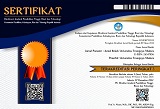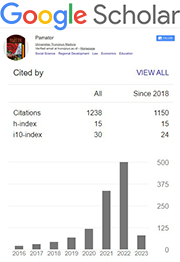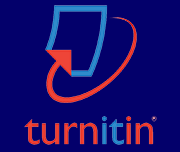Indonesian Salt Import Policy as A Threat and Opportunity in The Concept of Blue Economy in Indonesia
Abstract
Salt is a strategic resource or commodity with great potential and has not been appropriately managed. Indonesia, with a potential coastline of 81,000, has great potential to become a salt-exporting country, but currently, to meet the national salt demand, Indonesia must import salt. The right solution is needed to eliminate the problem of importing salt that occurs. The concept of the Blue Economy, which prioritizes economic growth from the marine and fisheries sector while ensuring the sustainability of resources and the coastal and marine environment, is closely related to the current salt import policy. This study aims to analyze the policy of importing salt from other countries to Indonesia as a threat or opportunity to realizing a Blue Economy in Indonesia. The method used in this study is a qualitative approach and the analysis used is PESTEL. It is recorded that 20 factors represent opportunities to import salt and 15 factors that threaten salt import. Even so, the study results show that the score for import opportunities is lower than the threat. From the score obtained, it can be concluded that although many factors encourage Indonesia to import salt, the urgency for Indonesia to import salt is still not too strong. This policy-making must be in line with the Blue Economy concept, which emphasizes the benefits and impacts of achieving welfare for the community. There needs to be a government policy to increase national salt production to suppress the increasing number of salt imports. The critical factor for its success is increasing the amount of domestic salt production. In the future, the results of this study can be used as material for consideration by the Indonesian government in developing national salt production
Keywords
Full Text:
PDFReferences
Baihaki, Lukman, ‘Ekonomi-Politik Kebijakan Impor Garam Indonesia Periode 2007-2012 (Economics Politics Policy on Salt Importation in Indonesia during 2007-2012)’, Jurnal Ilmu Sosial Dan Ilmu Politik, 17.1 (2013), 1–16
Banu, Nota Morra, ‘Konsep Blue Economy Terhadap Pembangunan Ekonomi Di Indonesia’, Ekonis: Jurnal Ekonomi Dan Bisnis, 22.1 (2020), 27–31
Bintang, Anggie Ayu, ‘Faktor Indonesia Mengimpor Garam Dari Australia Tahun 2014-2017’, JOM FISIP Vol. 6: Edisi I Januari – Juni 2019 Page 1, 110265 (2017), 110493
BPS. 2020. Statistical Yearbook of Indonesia. ISSN: 0126-2912 No. Publikasi/Publication Number: 03220.2007. Retrieved from: https://www.bps.go.id/publication/2020/04/29/e9011b3155d45d70823c141f/statistik-indonesia-2020.html
BSN. 2022. BSN: Penting Konsumsi Garam Beryodium yang Miliki SNI. Retrieved from https://bsn.go.id/main/berita/detail/11358/bsn-penting-konsumsi-garam-beryodium-yang-miliki-sni .
CNN Indonesia. (2022). Menperin: Impor Garam Sebenarnya Keterpaksaan. 28 Januari 2022. Retrieved from : https://www.cnnindonesia.com/ekonomi/20201009141308-92-556537/menperin-impor-garam-sebenarnya-keterpaksaan.
Eriawan Rismana and Nizar, ‘Kajian Proses Produksi Garam Aneka Pangan Menggunakan Beberapa Sumber Bahan Baku’, Chemistry Progress, 7.1 (2014), 58–61.
European Union (2018), “The 2018 annual economic report on EU Blue Economy: 5”, Retrieved from https://ec.europa.eu/maritimeaffairs/sites/maritimeaffairs/files/2018-annual-economic-report-onblue-economy_en.pdf .
Hajra, Yansa, ‘“Sea Water Filter with Circle Method for Increasing The Production of Ioded Salt Towards The Achievement of National Salt Self-Sustainability Sustainable”’, Jurnal PENA|Volume 2|Nomor 1|ISSN 2355-3766|227, 4.1 (2016), 1–23
Hoiriyah, Yuliana Ulfidatul, ‘Peningkatan Kualitas Produksi Garam Menggunakan Teknologi Geomembran’, Jurnal Studi Manajemen Dan Bisnis, 6.2 (2019), 71–76
Maulana, Khoironni Devi, Muhammad Mu’min Jamil, Priyus Eka Manunggal Putra, Baiti Rohmawati, and Rahmawati, ‘Peningkatan Kualitas Garam Bledug Kuwu Melalui Proses Rekristalisasi Dengan Pengikat Pengotor CaO , Ba (OH)2 , Dan (NH4)2CO3’, Journal of Creativity Student, 2.1 (2017), 42–46
Permana, Sony Hendra, ‘Kebijakan Pengembangan Produksi Garam Nasional’, Jurnal Ekonomi & Kebijakan Publik, 2.2 (2011), 657–80
Prayuda, Rendi, Dian Venita Sary, and Universitas Islam Riau, ‘Strategi Indonesia Dalam Implementasi Konsep Blue Economy Terhadap Pemberdayaan Masyarakat Pesisir Di Era Masyarakat Ekonomi ASEAN A’, Indonesian Journal of International Relations, 3.2 (2019), 46–64
Pusriskel Litbang KKP. 2021. Revitalisasi Tata Kelola Tambak Garam dalam Kerangka Penerapan Ekonomi Biru pada Industri Garam Rakyat. Retrieved from http://pusriskel.litbang.kkp.go.id/index.php/en/litbang/air-laut-dan-garam/2014/601-revitalisasi-tata-kelola-tambak-garam-dalam-kerangka-penerapan-ekonomi-biru-pada-industri-garam-rakyat .
Putra A., I. Nengah, Abdul Hakim, Sholeh H. Pramono, and Amin S. Leksono, ‘The Effect of Strategic Environment Change toward Indonesia Maritime Security: Threat and Opportunity’, International Journal of Applied Engineering Research, 12.16 (2017), 6037–44
Rismana, Eriawan, and Nizar, ‘Kajian Proses Produksi Garam Aneka Pangan Menggunakan Beberapa Sumber Bahan Baku’, Chemistry Progress, 7.1 (2014), 58–61
Salim, Zamroni, and Ernawati Munadi, Info Komoditi Garam, Al Mawardi Prima, 2016
Scholaert, Frederik., and European Parliament. Directorate-General for Internal Policies of the Union., The Blue Economy : Overview and EU Policy Framework : In-Depth Analysis., 2020
Sitorus, Heltina Wati., ‘Analisis Konsep Blue Economy Pada Sektor Kelautan Di Indonesia Berdasarkan Undang-Undang Nomor 32 Tahun 2014 Tentang Kelautan.’, JOM Fakultas Hukum Volume V Nomor 2, Oktober 2018., 11.1 (2018), 1–5
Taufiq, Nur, Syamsudin Putra, and Retno Hartati, ‘Produksi Garam Dan Bittern Di Tambak Garam’, Jurnal Kelautan Tropis, 19.1 (2016), 43–47
USGS. 2022. Mineral Commoditiy Summaries 2022. Retrieved from https://pubs.usgs.gov/periodicals/mcs2022/mcs2022.pdf.
Wedari, Diana Putu Sri, and I Wayan Sukadana, ‘Industri Pengguna Garam Dan Multiplier Efeknya Terhadap Perekonomian Putu Sri Diana Wedari I Wayan Sukadana Fakultas Ekonomi Dan Bisnis Universitas Udayana , Bali , Indonesia ABSTRAK PENDAHULUAN Indonesia Sebagai Negara Kepulauan Mempunyai Potensi Yang Be’, E-Jurnal EP Unud, 9.5 (2018), 1171–99
DOI: https://doi.org/10.21107/pamator.v15i1.14239
Refbacks
- There are currently no refbacks.
Copyright (c) 2022 Tomi Aris

This work is licensed under a Creative Commons Attribution-ShareAlike 4.0 International License.
Jurnal Pamator : Jurnal Ilmiah Universitas Trunojoyo by Universitas Trunojoyo Madura is licensed under a Creative Commons Attribution-ShareAlike 4.0 International License.















.png)